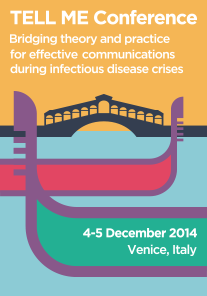Discussions
#fluscenario - how would you react to changing information during an epidemic?
We've teamed up with @nhssm to explore whether the interactive nature of social media genuinely changes the way in which we exchange and share health messages and what role health professionals, health organisations, the media and public sector bodies can play in disseminating real-time information during a flu pandemic.
Here's the first blog about it:
http://nhssm.org.uk/the-bmj-and-nhssm-team-up-to-run-a-fluscenario/
The idea is that we will publish a blog everyday until the 13th June, with new snippets of information, as this hypothetical flu virus unfolds. In the process we are asking you some questions about how you would respond in terms social media communication. You can write your responses below the blog post.
Here's the first blog post:
http://nhssm.org.uk/fluscenario-part-1-intro-and-background-to-the-scenario/
How would you use social media during an epidemic?
As part of our project into the use of social media during public health crises and epidemics, we're asking everyone to participate in this very short survey to say how they would act on social media during the throes of an epidemic.
If you could take the time to let us know - we would really appreciate it!
Here's my blog exploring the matter: How would you use social media during a public health crisis?
Link to survey: http://bit.ly/LDeiO3
Social media communication during epidemics
We will be assessing the way social media has been used in the past by health authorities, doctors, nurses and patients, to spread messages during epidemics.
Notably, we are interested in social media’s role to spread reliable information to at-risk groups, but also its potential to spread misinformation. We want to explore the following areas:
- How has social media been used in previous epidemics to reach at-risk groups/spread health messages? (How have health authorities and doctors used it? What have patients used it for?)
- What’s the psychology behind social media? Does it compel users to help each other?
- Recommendations on how social media be used to spread relevant information more effectively
- How can social media be used to get different health professionals (doctors, nurses, etc) to communicate with each other and share infromation/advise patients?
- What are its limitations?
We will be posting on the next few months to gauge opinion and will be working with @nhssm who conduct a few Twitter chats, a blog, and scenario exercise, to explore the answers to some of these questions and find out how social media could be used by health professionals in the future to improve communication and disemminate reliable information.
Should doctors use social media to disseminate public health information?
Best way to find the most important/landmark papers in medicine?
Someone sent me http://signup.trendmd.com/ but it doesn't allow me access. Anyone used it?
Should we think more creatively about the uses of social media in healthcare?
http://www.gponline.com/News/article/1128299/gmc-consults-guidance-gps-using-facebook-twitter/
For me, whilst it is important to provide guidelines, I am concered that all discussion of the potential uses of social media in healthcare are being bogged down by issues to do with professionalism, reputation, confidentiality etc. Whilst I full acknowledge these are important issues, there seems to be s a lack of balance.
There is a small but committed band of healthcare professionals dedicated to exploring the uses of social media in healthcare, but for me the majority of what I see discussed about doctors and social media seems to be dominated by largely bureaucratic or technical issues.
Should there be more creative thinking in how we can use social media in healthcare? (E.g. public health engagement, disemmination of information for patients etc?) 'Social' media implies that it is a social tool, and perhaps doctors want to use it purely for social use, but seeing that how many people use Twitter as a news source, surely the health profession should harness it more widely?
Introducing.... TELL ME
BMJ Group and doc2doc are involved in a European Commission project called TELL ME, which is looking into communication techniques used during public health crises.
TELL ME stands for Transparent communication in Epidemics: Learning Lessons from experience, delivering effective Messages, providing Evidence) and is a 36 month Collaborative Project, which aims to provide evidence and to develop models for improved risk communication during infectious disease crises. TELL ME combines public health, social sciences, behavioural sciences, political sciences, law, ethics, communication and media, in order to develop original communication strategies regarding complicated messages and advice based on uncertainties, also addressing vaccine-resistant groups
You can read more about the project on the website: http://www.tellmeproject.eu/
doc2doc’s involvement in the project is to write a report on the use of social media during public health crises, as well as put together a guidance document for health professionals with the goal to increase vaccine uptake in at-risk groups/vaccine resistant groups, and to coordinate the publication schedule for the whole project.
Being an online community network, we would really like to get doc2doc users involved in this project, as well as non members too. Seeing that one of the reports is on social media (or new media), it seems only right that we consult online communities and draw upon your vast array of experience and knowledge, to produce a well-informed and engaging report.


